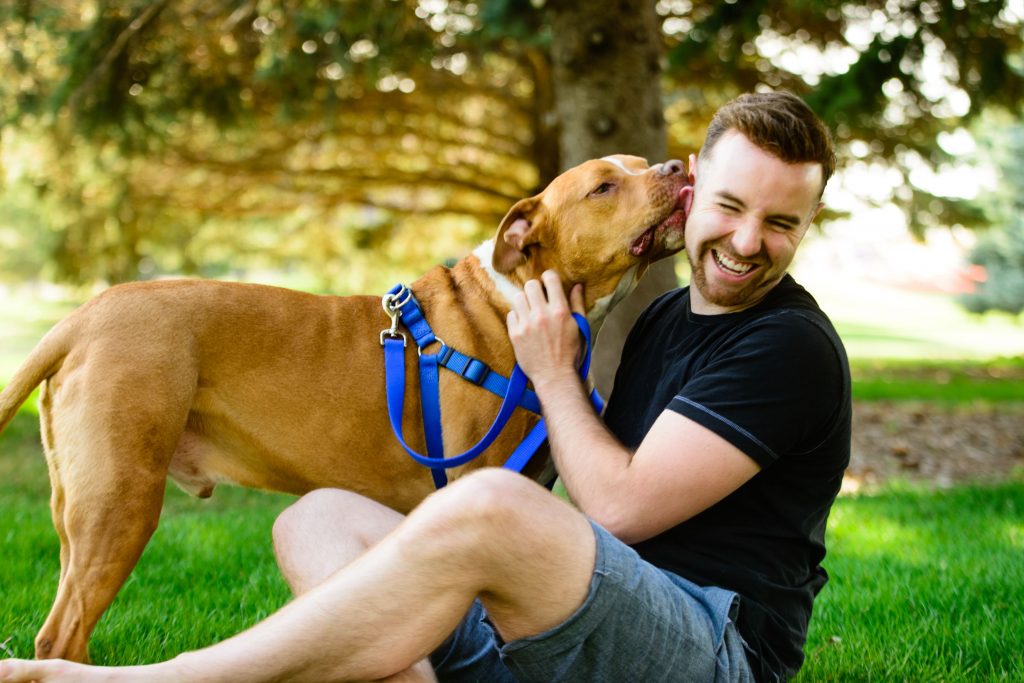
Red Rocket: Paraphimosis in Dogs

If you’re the owner of a male dog, you may have adopted some “pet” names for your dog’s privates—such as dog lipstick or red rocket—because who wants to say “dog penis” in mixed company? Whatever your code words are for your pup’s private parts, there is a potentially serious condition that is certainly no laughing matter: dog paraphimosis.
At Arlington Animal Hospital, we can help you understand this potentially serious condition and know when to contact the doctor.
What is Dog Paraphimosis?
First, a quick anatomy lesson. That fur-covered, oblong protrusion hanging from your dog’s underside is not his penis. That’s called the prepuce, and it’s the sheath that covers and protects your dog’s penis. A lipstick or red rocket sighting occurs when your dog’s actual penis (the pink part) sticks out from the prepuce.
Paraphimosis occurs when your dog’s red rocket is stuck out for a long period of time, and in some cases, it’s a veterinary emergency. Left untreated, paraphimosis can cause permanent damage and impact your dog’s ability to urinate.
Paraphimosis Symptoms
When paraphimosis happens, the appearance of your dog’s privates—and often his behavior—is much different from a temporary dog lipstick sighting. (You can view a picture of paraphimosis in dogs here, but it’s not for the faint of heart!)
Common signs of paraphimosis include:
- A larger than usual portion of the dog’s penis is visible
- Your dog’s erection is not going away
- The penis is definitely swollen
- The color is more purple than pink (an indication of restricted blood flow)
- Your dog may be grooming himself incessantly
What Causes Canine Paraphimosis?
Paraphimosis is much more common in unaltered dogs but can still occur in neutered males. The primary cause is what we call “misdirected sexual activity,” in other words, that undesirable (and often embarrassing) dog humping that occurs when you invite a new friend over for coffee. The male dog gets excited, but something (sometimes just fur) prevents his penis from retracting back into the prepuce. Because unaltered males are more likely to engage in humping legs or inanimate objects, they’re more likely to suffer from paraphimosis.
Other causes include:
- Anatomical abnormalities, like a misshapen (or mis-sized) prepuce
- Cancer or a tumor restricting the movement of the penis
- Neurological conditions
- Injury to the penis
- A broken bone within the penis
Treatment Options
Your Arlington Animal Hospital veterinarian will perform a full examination to determine the cause of your dog’s paraphimosis. Treatment will depend upon the diagnosis. In some instances, surgery may be necessary to reconstruct or recreate a properly functioning prepuce. This surgery can frequently cure the problem altogether or alleviate most of the problems.
Please contact us right away if you think your dog may be experiencing paraphimosis.
Contact Us!
2301 Columbia Pike #G-1, Arlington, VA 22204
Phone: (703) 920-5300
Fax: (703) 685-8860
Email: info@myarlingtonvet.com
Office Hours
-
Monday
8 a.m. – 8 p.m.
-
Tuesday
8 a.m. – 8 p.m.
-
Wednesday
8 a.m. – 6 p.m.
-
Thursday
8 a.m. – 6 p.m.
-
Friday
8 a.m. – 6 p.m.
-
Saturday
8 a.m. – 2 p.m.
-
Sunday
CLOSED
- Doctors’ hours are by appointment only.



